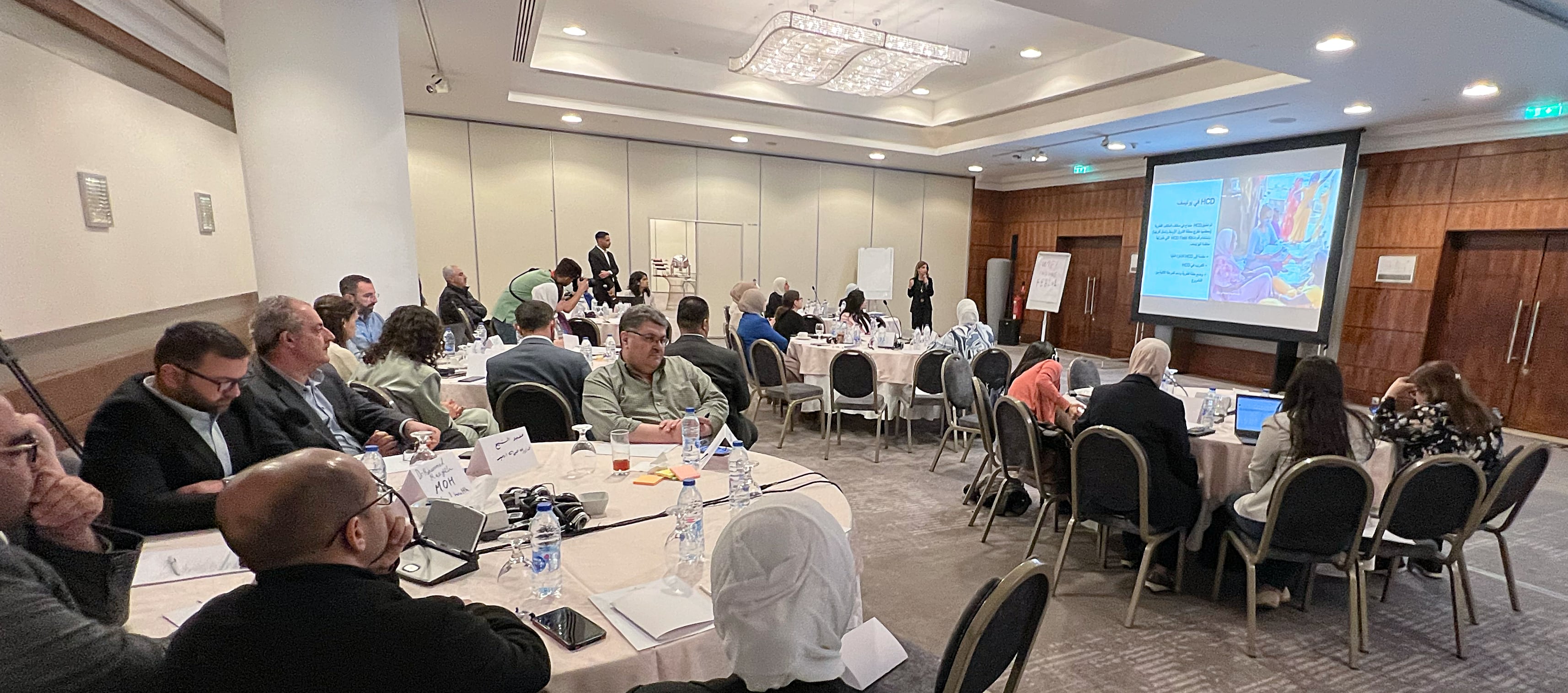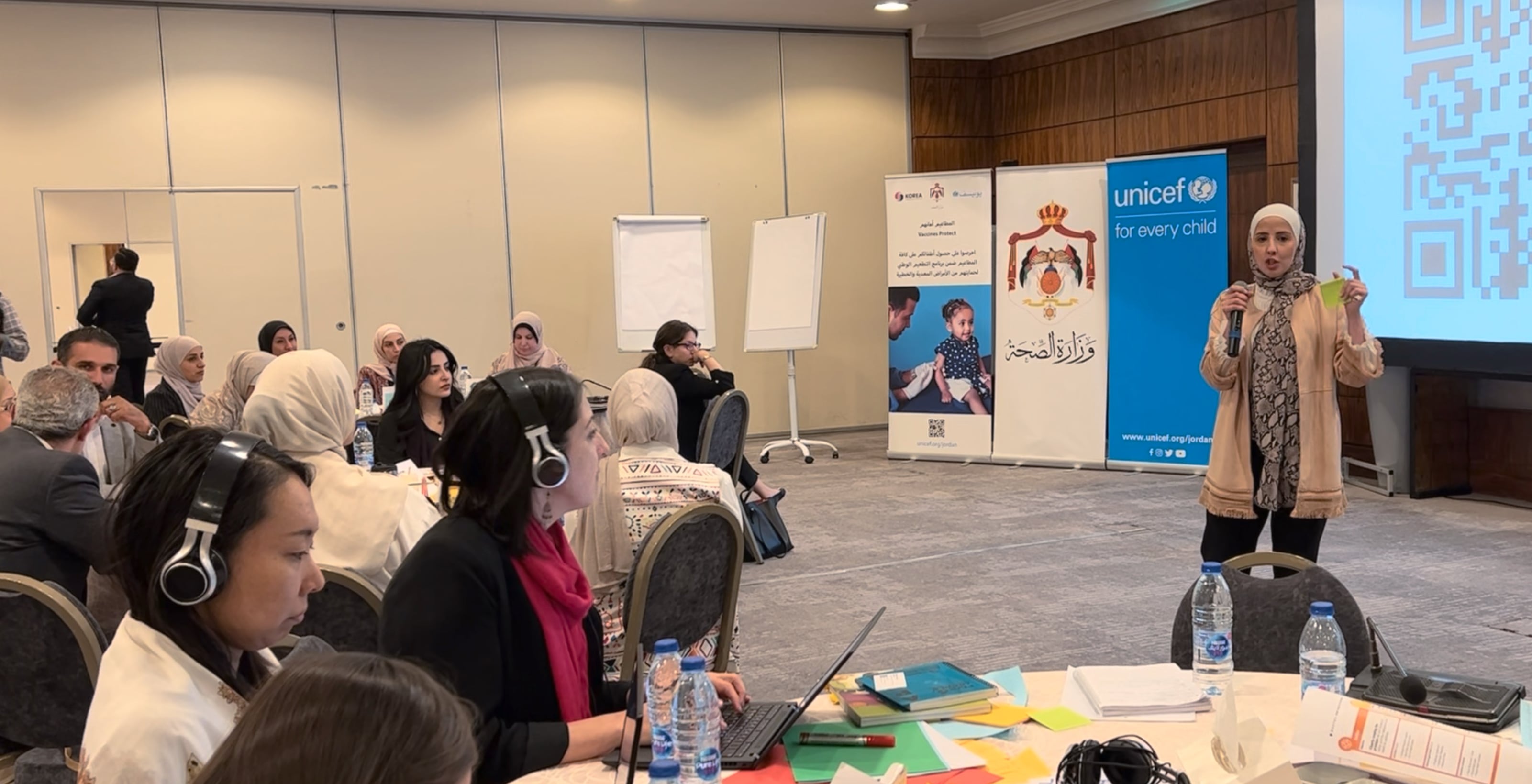
Organisations, particularly those in complex humanitarian or development sectors, often face multifaceted challenges that traditional problem-solving approaches struggle to address. These challenges require innovative, adaptable and empathic ways to problem solving. A common barrier is the lack of internal capacity in methodologies like Human-Centered Design (HCD) and Behavioural Insights (BI), hindering their ability to deeply understand user needs, rapidly prototype, and effectively implement impactful programs.
Our objective was to equip UNICEF staff and key partners across the region with the knowledge, tools, and confidence to apply HCD in projects aimed at improving access to immunisation and nutrition.

We began with an HCD readiness assessment tool across various country offices. This allowed us to design a customised training that would resonate with the challenges faced across the region.

We delivered comprehensive training sessions designed for UNICEF's working-level staff and key partners such as WHO and Red Crescent. These sessions, tailored to country-specific needs in terms of format, language (including Arabic and French), and duration. They focused on understanding the principles of HCD based on the "DEPTHS" process and directly applying tools through hands-on exercises. Participants engaged in activities like Journey Mapping, developing Opportunity Statements, and Low-Fidelity Prototyping. The use of collaborative tools like Miro boards enhanced the interactive experience, enabling real-time co-creation and problem-solving. We also conducted in-person partner engagement sessions with local partners, allowing for even deeper dives and rapid field exercises.

We provided ongoing mentoring and support to country offices. This included assistance in planning and preparing for subsequent phases, developing country-specific plans, updating monitoring and evaluation frameworks to include target behaviours and indicators, and linking new knowledge to existing UNICEF assets. This ensured the HCD methodologies would be integrated into their long-term operational strategies.

Our comprehensive Human-Centered Design training enabled UNICEF staff and their partners to:
This initiative empowered UNICEF teams across the MENA region with invaluable design thinking capabilities, enabling them to approach their vital work with enhanced empathy, creativity, and effectiveness, ultimately leading to more impactful interventions for the communities they serve.


